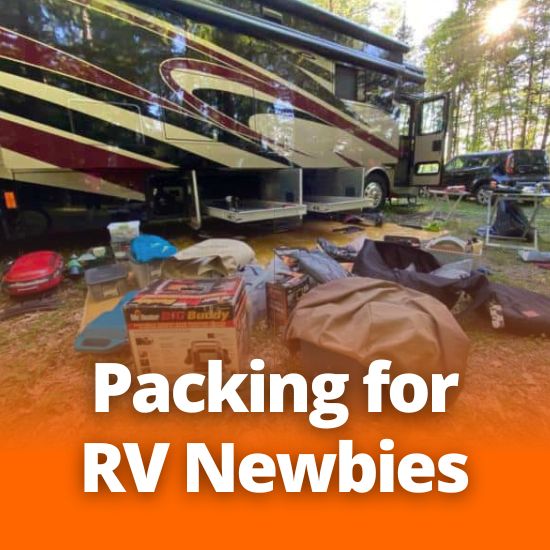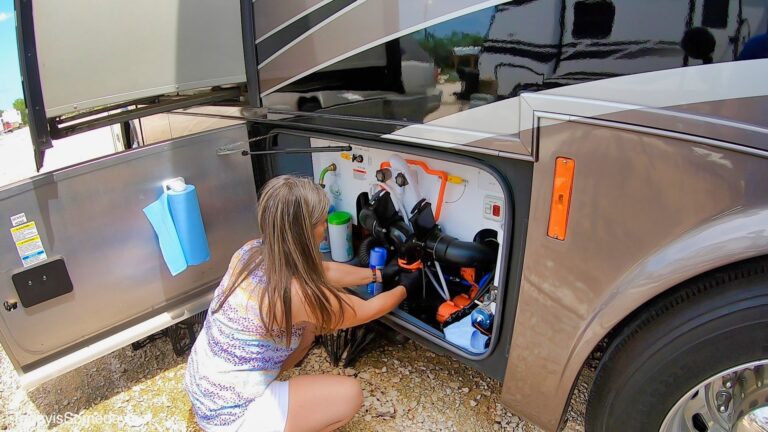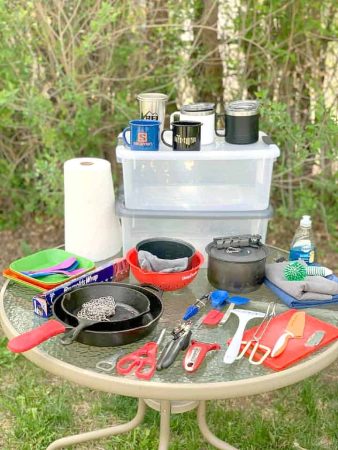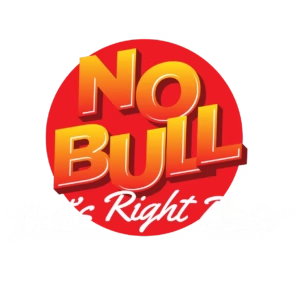
Packing for RV Newbies
Are you new to RVing, maybe you’re planning to get into it (maybe you were scrolling through our travel trailers and ended up here – if so: Hi! Welcome!)
It can be intimidating when you’re first striking out, and if you didn’t grow up camping, asking questions can feel awkward. We’ve got your back!
What follows is our newbie basic packing tips to help you get started before your first adventure – who knows, maybe you’ll figure out a few tricks of your own along the way to share with us.
First things first: Be prepared EARLY. Don’t wait until the last minute to either pick up your gear, or pack it, that’s a recipe for forgetting. (Plus stuff could be out of stock and then you’re waiting and twiddling your thumbs and delaying your trip, and that sucks).
You can find RV gear at some dealerships but that’s not your only option. Home improvement stores, Walmart, and Amazon are all options – and, you can always price compare because many will have the same product on their shelves.
Water and Electric Hookups
Unfortunately, it’s not as simple as plugging in your phone when connecting your trailer to water and electric at camp, and you’ll need a few items.
Water Hookups
- Potable Water Hose: While this can look like your standard garden hose, these are made specifically without any chemicals that affect the taste and quality of the water. It’s connected to ‘city water’ to fill your fresh tank.
- Water Pressure Regulator: Helps you avoid damages or issues of burst water lines or leaking fittings, if the campsite water connections have high pressure.
- Water Filter: This is an absolute must! Quality varies (you get what you pay for) with the most basic keeping large sediment out of your system, and the more expensive options helping taste and smell.
Electric Hookups
- Power cable: Your RV should come with an appropriately sized one, typically of 20 or 50 amps. Usually measuring 25-30 feet in length.
- RV Extension Cord: Yes, 30-feet sounds like a lot but you’ll start to discover that some power pedestals aren’t placed the most conveniently, so an extension will be worth it.
- Surge Protector: Another MUST! This is the most crucial accessory to have to protect your electrical system from power surges. Definitely don’t hook-up to a power pedestal without one (the repairs will be pricey).

Sewer Hookups
Don’t let your RV sit when you get home, always dump your tanks after a trip (or throughout if you’re on a particularly long one). Of course you’ll need a few things to do so or, well you’ll end up like Robbie here.
Grab yourself a sewer house and the appropriate attachments, you can usually find a kit that includes everything required. We also recommend a separate, designated bin (with lid) to store everything in for cleanliness – we go into more detail on that here
Other Essentials
The more you RV, the more you’ll find yourself picking up little bits and pieces to make your campsite set-up easier. But a few basics we recommend are:
- Good chocks for your wheels (none of those weak plastic ones)
- Rubber gloves to keep your hands clean when dumping your tanks
- Leveling blocks
What Should I Pack?
Easy things to remember like clothes, toiletries, and food are simple. But there are a few “common sense” things that you might miss if you don’t have them noted down, like:
- Inexpensive dishes and silverware
- Tupperware and plastic bags
- Coffee and tea, and all that goes with them (french press, coffee maker, filters)
- Coat hangers
- Extra batteries
- Pet necessities (bed, dishes, etc)
Start making a list of the things you use day-to-day, and figure out what you’ll need to either buy for your trailer or remember to pack beforehand.

The Basics
But beyond your personal items, there’s also a few things every RVer should have on hand.
- Basic Tool Kit
We’re not saying you need a table saw, but a set of tools including a hammer, pliers, and different screwdrivers is a must. You can easily find a kit online or in a home hardware store.
- Meal Prep
This isn’t so much an item as a tip. Prep as much as you can for meals and snacks before you leave. This will help you figure out storage as well as cut down on kitchen accessories. Pre-measure spice mixes, have a good cooler in your outside storage, and generally easy to cook meals will help you adjust easier to tiny space and fire pit cooking. And they’ll cut down on dishes!
- Entertainment
When rain or cold weather hits and the beach or trails aren’t the popular choice, you’ll want a few options on hand to stay occupied. Especially if you want to avoid bloodshed with your family. Having a few movies, books, and boardgames will save you (we have a few recommendations here)
Other Packing Tips:
- Don’t overpack! This can not only cause issues with towing but put you in a mess throughout your trip. Erring on the side of caution is one thing, but if you realize you forgot something just add it to your list for next time. Odds are you’ll be able to get by without it for a little bit.
- Do a dry run. Set up on your driveway or in a site near home (and by near I mean it’s a few minute drive), and challenge yourself not to have to go home for a weekend. If you forgot something that you absolutely need you can start a list to remember for the real trip.
Hopefully some of these tips will help you as you begin your RV journey, stay tuned for more newbie tips in the future!
